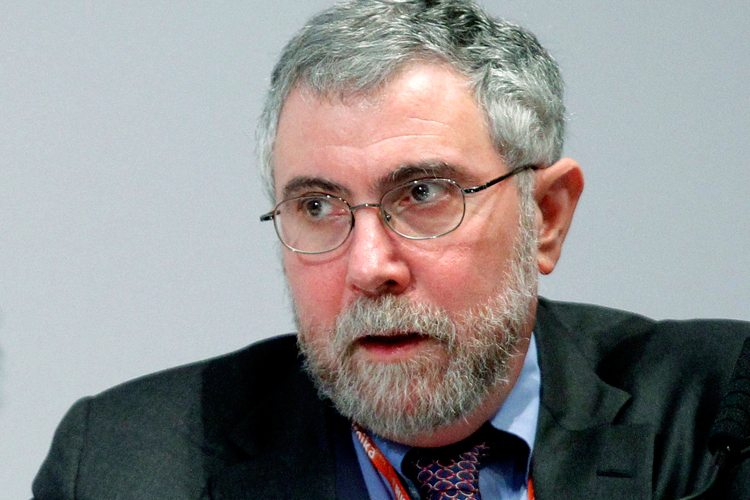Paul Krugman has long argued that policymakers throughout the West made a grievous error in 2010 by turning their focus from employment to debt. This mistake, Krugman has argued, made the West’s recovery from the economic collapse of 2008 that much harder and slower to come. Yet while austerity has lost much of its prior political momentum, Krugman now warns that a too-quick rush to raise interest rates may unnecessarily damage the West’s economies yet again.
In his latest column for the New York Times, the award-winning economist and best-selling author urges the so-called serious people to resist the temptation to raise interest rates. “Suddenly, it seems as if all the serious people are telling each other that despite high unemployment there’s hardly any ‘slack’ in labor markets — as evidenced by a supposed surge in wages — and that the Federal Reserve needs to start raising interest rates very soon to head off the danger of inflation,” Krugman complains.
Raising interest rates would be a mistake, Krugman says, because wages aren’t growing at a clip fast enough to make inflation concerns justified. “[W]hile it’s possible to argue that we’re running out of labor slack, it’s also possible to argue the opposite,” Krugman writes, “and either way the prudent thing would surely be to wait …”
But what explains the Western elites’ desire to raise rates all the same? Krugman offers three explanations.
First, he argues, is the fact that “for some people it’s always 1979,” with the menace of stagflation looming just over the horizon. “That is, they’re eternally vigilant against the danger of a runaway wage-price spiral, and somehow they haven’t noticed that nothing like that has happened for decades,” Krugman notes. “Maybe it’s a generational thing. Maybe it’s because a 1970s-style crisis fits their ideological preconceptions, but the phantom menace of stagflation still has an outsized influence on economic debate.”
Second, Krugman writes that what he likes to call “sado-monetarism” — a belief “that inflicting pain is ipso facto good” — is an influence, too. “There are some people and institutions — for example, the Basel-based Bank for International Settlements — that always want to see interest rates go up,” he continues. “Their rationale is ever-changing — it’s commodity prices; no, it’s financial stability; no, it’s wages — but the recommended policy is always the same.”
However, the last explanation offered by Krugman is the most sweeping. Alongside being stuck in the past and suffering from sado-monetarism, Krugman writes, the uncomfortable truth is that many people who want higher interest rates feel that way because of “class interests.” Krugman writes:
Finally, although the current monetary debate isn’t as openly political as the previous fiscal debate, it’s hard to escape the suspicion that class interests are playing a role. A fair number of commentators seem oddly upset by the notion of workers getting raises, especially while returns to bondholders remain low. It’s almost as if they identify with the investor class, and feel uncomfortable with anything that brings us close to full employment, and thereby gives workers more bargaining power.
Whatever the underlying motives, tightening the monetary screws anytime soon would be a very, very bad idea. We are slowly, painfully, emerging from the worst slump since the Great Depression. It wouldn’t take much to abort the recovery, and, if that were to happen, we would almost certainly be Japanified, stuck in a trap that might last decades.
Is wage growth actually taking off? That’s far from clear. But if it is, we should see rising wages as a development to cheer and promote, not a threat to be squashed with tight money.

